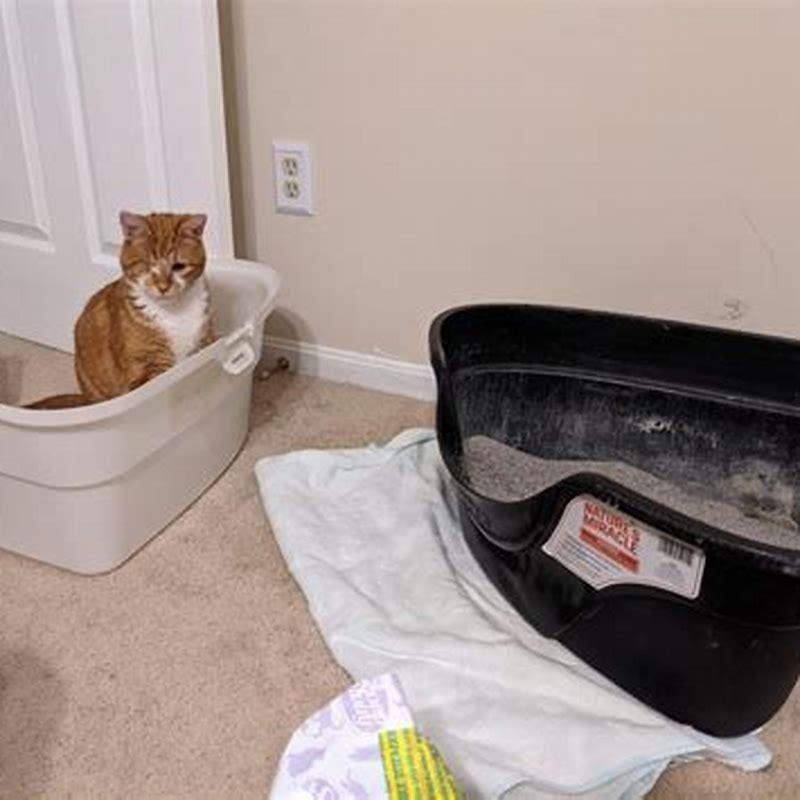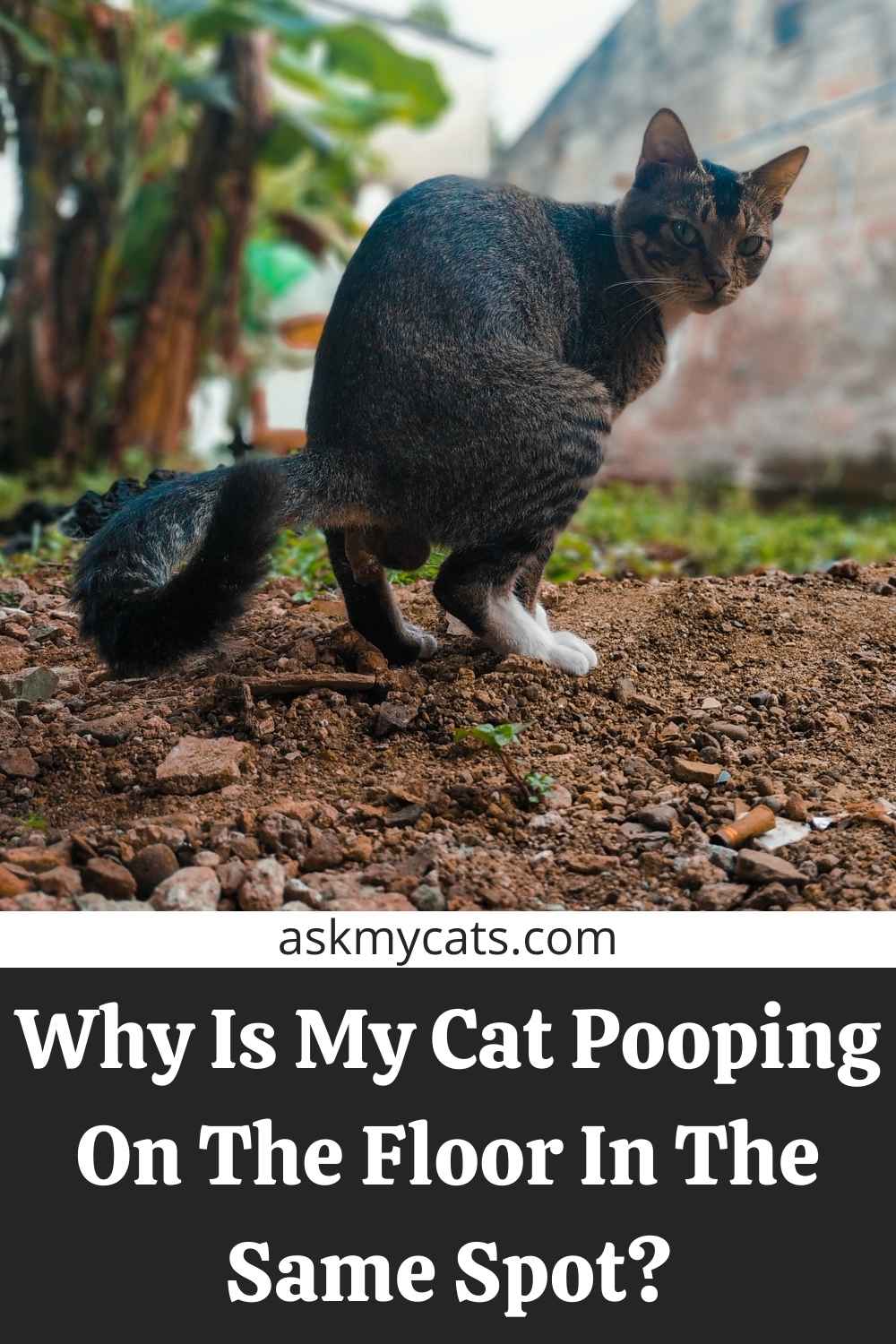It’s a scene most cat owners have likely dreaded: discovering a pile of cat poop right next to the litter box, untouched by the litter box itself. The sight can be frustrating, confusing, and even a little alarming. You meticulously clean the litter box, refresh the litter, and even change its location, but the behavior persists. Why does your cat keep pooping outside the litter box, and more importantly, what can you do about it?

Image: diyseattle.com
This seemingly frustrating behavior, though, is often a sign that something is amiss. Cats are naturally clean animals, and they prefer to do their business in a specific, secluded spot. When they deviate from this instinct, it’s a clear indication that something is wrong. Understanding the reasons behind this behavior can help provide the solution to this common feline dilemma.
Understanding the Reasons Behind the Unwanted Behavior
While it’s tempting to assume your cat is simply being stubborn or spiteful, the reality is much more nuanced. There are various reasons why your cat might be pooping outside the litter box, and identifying the root cause is crucial to finding the correct solution.
Litter Box Issues
Cats are notoriously picky about their litter boxes. If the litter box itself is the problem, your cat might be signaling their dissatisfaction with actions like pooping outside the box. These common issues could be the culprit:
- Dirty Litter Box: Cats are exceptionally clean animals who prefer a fresh, odorless environment. If the litter box isn’t cleaned frequently, the strong smell might deter your cat from using it.
- Inappropriate Litter: Some cats are very particular about the type of litter used. Experimenting with different types of litters, such as clay, silica gel, or even unscented options, can help identify any potential issues.
- Litter Box Location: Noise, traffic, or perceived privacy issues can make a litter box less appealing. Try relocating it to a quieter, more secluded area.
- Litter Box Size: Smaller cats might find a large litter box overwhelming, while larger cats might not feel comfortable in a tiny one. Choose a litter box that is appropriately sized for your cat.
Medical Reasons
Sometimes, pooping outside the litter box is a symptom of an underlying medical issue. If your cat’s behavior changes suddenly, consider taking them to the vet. These are some common medical conditions that can cause litter box issues:
- Urinary Tract Infections (UTIs): Pain and discomfort during urination can make using the litter box difficult.
- Lower Urinary Tract Disease (FLUTD): A condition that can affect the bladder, urethra, or kidneys, causing difficulty or pain during urination.
- Constipation or Diarrhea: These can be painful and uncomfortable, potentially prompting your cat to choose another location for relief.
- Arthritis or Other Mobility Issues: Difficulty getting in and out of the litter box can make it challenging for older or arthritic cats.

Image: askmycats.com
Behavioral Reasons
Sometimes, environmental changes, stress, or anxiety can lead to litter box issues. These are the behavioral reasons that could be contributing:
- Stress or Anxiety: Introducing a new pet, moving to a new home, or even a change in routine can trigger stress and anxiety, resulting in pooping outside the box as a sign of distress.
- Fear or Distrust: If a cat feels threatened or uncomfortable in the bathroom, they might avoid the litter box altogether.
- Marking Territory: Cats often use urine or feces to mark their territory, particularly in multi-cat households.
Tips for Solving the Problem
Once you’ve identified the potential cause, you can begin to implement solutions. Here are some strategies that can help:
- Clean the Litter Box Regularly: Scooping it at least once a day, if not more often, is essential for maintaining a clean and inviting environment.
- Experiment with Different Litters: If your cat is sensitive to certain types of litter, try switching to a different brand or formula.
- Relocate the Litter Box: Experiment with different locations until you find one that is quiet, private, and easy for your cat to access.
- Add More Litter Boxes: If you have several cats, consider having more than one litter box to reduce territorial issues and provide greater access.
- Consult a Vet: If the problem persists, rule out any underlying medical conditions by scheduling a veterinary appointment.
- Address Stress and Anxiety: Creating a calming environment, providing interactive toys and scratching posts, and offering a safe space can help reduce stress.
FAQ
Q: Why does my cat poop on the floor next to the litter box?
A: There are several reasons, including dirty litter boxes, inappropriate litter, location issues, and medical problems. A vet visit can help rule out medical issues.
Q: What are some signs that my cat might have a medical issue related to pooping outside the litter box?
A: Sudden behavior changes, straining, blood in urine or feces, and changes in appetite or urination frequency could indicate an underlying medical condition.
Q: What should I do if my cat continues to poop outside the litter box despite my efforts?
A: It’s important to consult with your veterinarian. They can help identify the root cause and recommend appropriate solutions.
Cat Keeps Pooping On Floor Next To Litter Box
Conclusion
Cat pooping outside the litter box can be a frustrating experience, but with patience and observation, you can usually identify and address the problem. Remember that your cat’s behavior is often a reflection of their health and well-being. By addressing their needs, you can create a cleaner environment and happier household for both you and your furry friend.
Are you experiencing this behavior with your cat? Share your story and any tips you’ve found helpful in the comments below!






